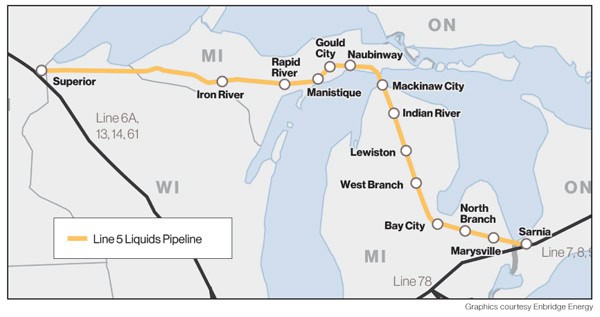SOUTHFIELD – The Michigan’s Office of Future Mobility and Electrification, in partnership with Centrepolis Accelerator at Lawrence Technological University, is pleased to announce the recipients of the Michigan Mobility Prototyping Grant Program.
The initiative, launched earlier this year, provides funding and technical assistance to accelerate the development of innovative mobility and electrification technologies. The funding is focused on key areas such as product development, prototyping, product testing, and manufacturing readiness.
With a total of $813,000 in funding, including $525,000 from the Michigan Economic Development Corporation and $288,000 from Centrepolis Accelerator, the program will fund 17 projects, fostering innovation and strengthening Michigan’s leadership in mobility and electrification.
The program was designed to build on Michigan’s strengths in product design, engineering, prototyping, and manufacturing capabilities and offers grant services to advance the commercialization of mobility and electrification technologies. The program was launched in April and attracted over 90 applications from companies throughout Michigan and across the globe.
Justine Johnson, Chief Mobility Officer, State of Michigan, added, “This program is addressing the high demand for product development and prototyping from start-ups and established firms launching new hardtech mobility and electrification products. By partnering with Centrepolis, we are ensuring that these companies have the critical Michigan-based product development support they need to succeed, which will also lead to more mobility and electrification products to be made in Michigan.”
“We are grateful to OFME for committing resources for what we see is a gap in funding for hardtech-based mobility and electrification companies,” said Dan Radomski, CEO of Centrepolis Accelerator. “Mobility companies recognize there is no better place in the world to design, engineer, and build their products than in Michigan, and this program offers a pathway for firms from all over the world to benefit from the state’s product development and manufacturing expertise.”
The following companies have been selected to receive funding through the Michigan Mobility Prototyping Grant Program:
- Modal Motors, Farmington Hills: specializes in non-rare earth material electric vehicle motors. The grant will be used to support the design, engineering, and prototyping of electric motors for use in a wide variety of mobility products.
- Civilized Cargo, Detroit: develops versatile cargo solutions for electric bikes and other light electric vehicles. The grant will assist with vehicle durability and validate the performance of the company’s Semi-Trike with select components.
- Bedestrian, Ann Arbor: innovates autonomous delivery vehicles for urban settings. The grant will support the integration of a new motor to boost performance, efficiency, and serviceability.
- Lectric Boil, Detroit: offers the world’s most lightweight, portable, sustainable way to boil water and cook meals fast and off-grid. The grant will assist with refining materials and testing prototypes.
- Dunamis Charge Inc., Detroit: designs and manufactures EV charging products. The grant will fund the development of a proof-of-concept prototype of a high-voltage EV fast charging product.
- SkySpecs, Ann Arbor: offers advanced drone-based inspection solutions for wind turbines and other infrastructure. The grant will fund the development of an optimized Ground Control Station (GCS) to improve wind turbine drone inspections, reduce operational costs, and enhance user experience.
- EV Thermal Flow Solutions, Southfield: specializes in thermal management systems for electric vehicle batteries. The grant will support the development and validation of EVTFS’s electric vehicle thermal management system, improving performance alignment between hardware and simulation models.
- Blueflite Inc., Brighton: develops VTOL drone-based logistics solutions. The grant will support a collaboration between Blueflite and Intecells, located in Troy, MI, to extend drone flight time and range through advanced battery technology, bolstering drone innovation and strengthening Michigan’s local supply chain in the mobility and electrification sectors.
- LIVAQ, Detroit: designs electric off-road all-terrain vehicles (ATVs). The grant will support the prototyping of two electric ATV units that will be deployed for a Michigan pilot to test the performance and utility of the vehicles in state parks in partnership with the Michigan Department of Natural Resources.
- Marel Power Solutions, Plymouth: developer of modular power conversion subsystems designed to provide compact, configurable, and scalable power stacks. The grant will aid in developing and testing six compact HYDRA power stacks, designed to be ultra-light and customizable for various industry applications.
- SeaLandAire Technologies, Inc., Jackson: innovates unmanned systems for environmental monitoring and defense. The project aims to enhance product design for production scaling, including design for manufacturability, maximizing efficiency, and cost reduction while maintaining the system’s performance.
- Revision Autonomy, Kalamazoo: enables safe driving in adverse weather conditions. The grant will fund the development of a beta prototype, focusing on two key areas: designing and analyzing the transmitter and receiver module housings using Finite Element Analysis (FEA) and fabricating the prototype while conducting Design for Manufacturing (DFM) and Design Failure Mode and Effects Analysis (DFMEA).
- X3 Energy, Baraga: specializes in mobile microgrid energy management systems. The grant will be used to develop product requirements and engineering plans for integrating EV charging into a mobile microgrid.
- One Six Energy, Detroit: focuses on green hydrogen solutions for mobility applications. The grant aims to develop product requirements and design for manufacturability assessment.
- Orb Aerospace, Lowell: develops hybrid-electric drone aircraft. The grant will specifically support the final stages of product development, including software enhancements and production readiness, ensuring Orb LASSie meets the rigorous demands of military and humanitarian missions worldwide.
- Noble Gas, Novi: innovates hydrogen storage for fuel cell technologies. The grant will be pivotal in accelerating the mobile hydrogen storage requirements and engineering plan to meet military and commercial applications.
- Mettle Ops, Madison Heights: provides advanced engineering and prototyping services for defense and mobility applications. The grant will be used to design, build, and test prototypes of UAS platforms, establish production lines, secure a U.S. government contract, and obtain a GSA schedule for UAS platforms and micro-brushless motors for drones.
For more information on the Michigan Mobility Prototyping Grant Program, please visit https://www.michiganbusiness.org/mobility-funding/mobility-prototype-grant/.






